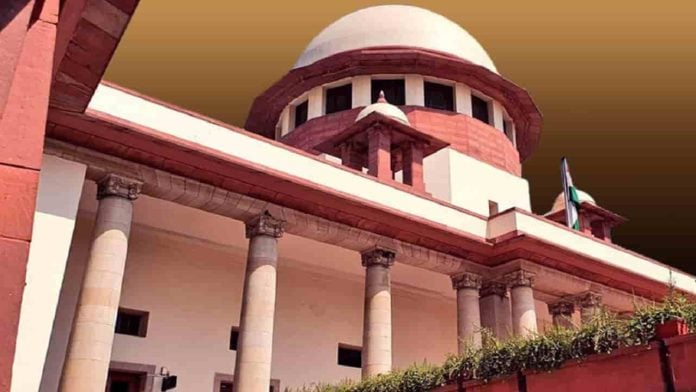The Supreme Court on Wednesday issued notice on a petition levelling serious allegations against the Election Commission of India in connection with linking of sensitive information of voters to their Aadhaar cards using an undisclosed software.
The SLP, filed by Hyderabad-based Engineer Srinivas Kodali through Advocate N. Sai Vinod, came up for hearing before the Bench of Chief Justice of India (CJI) D.Y. Chandrachud and Justice P.S. Narasimha.
The Apex Court remarked orally that the issue was an ‘important’ one and issued notice.
Appearing for Kodali, Advocate Gautam Bhatia contended that the Election Commission allowed state governments to access and make copies of records containing sensitive information about voters, such as their religion, caste, tribe, ethnicity, language, records of entitlement, income and medical history.
Lining of such sensitive information of voters with their Aadhaar Cards would allow political actors to segment people into ‘interest groups’ and either selectively target or ignore them from the electoral process, thereby interfering with free and fair conduct of election, contended the petition.
The petitioner alleged that all this was done in the absence of any valid law to use algorithm as an aid or substitute for verifying electoral rolls.
He further charged the Election Commission of abdicating its constitutional duty under Article 324 and statutory obligation under the Representation of the People Act, 1950 to prepare electoral rolls without the aid or assistance from the government or electronic databases under their control.
As per the petition, the names of a large number of voters in Telangana and Andhra Pradesh were deleted by the software, thus depriving millions of voters in the two states of their voting rights, without following any due process and without any explanation.
The plea further noted that the Right to Vote encompassed the right to not have an excessive administrative burden that either impeded or deprived the right to vote. In failing to inform the affected voter and without specifying the reasons for deletion, the Commission had unlawfully placed the burden on voters to prove that they were neither duplicate, nor shifted, nor a dead voter.
The petitioner had earlier approached the Telangana High Court, which dismissed his PIL.
The Commission had claimed before the High Court that the alleged software was a database maintained system used for purification of electoral rolls.
It said the software neither deleted the names of voters on its own, as claimed in the petition, nor was there any algorithm in the software, which could be used as intelligence for taking a decision by itself.
The Commission further said that EROs were empowered under Section 22 of the Representation of the People Act, 1950 and under Rule 21A of the Registration of Electors Rules, 1960 to carry out deletion and correction of names in electoral rolls.
The petitioner had claimed before the High Court that ECI had failed to justify that the burden this move cast on privacy rights, was proportional to their stated goals.
The High Court had dismissed the plea stating that if any individual was aggrieved by deletion of his name from the voter list, he had the remedy to submit a proper application for inclusion of his name in the voter list.
It had added that even an online mechanism was available for the inclusion of names in the voter list.
(Case title: Srinivas Kodali vs Election Commission of India & Others)


